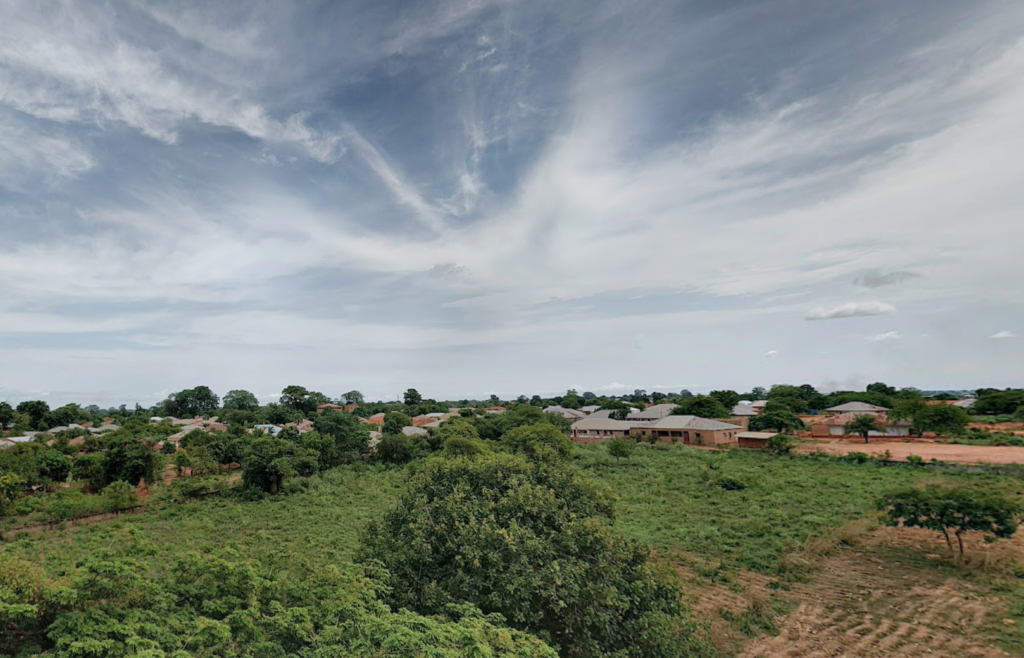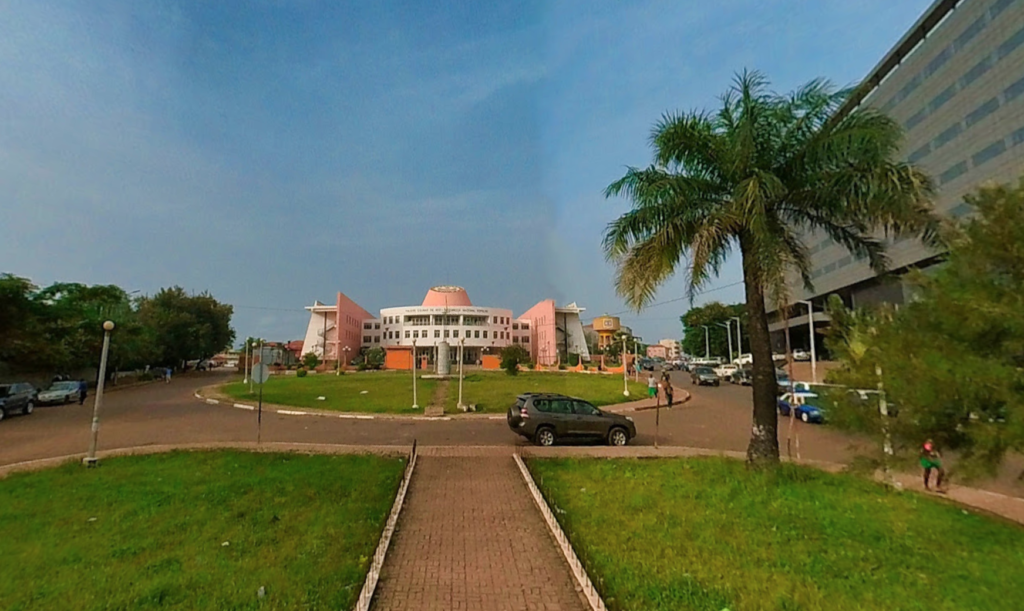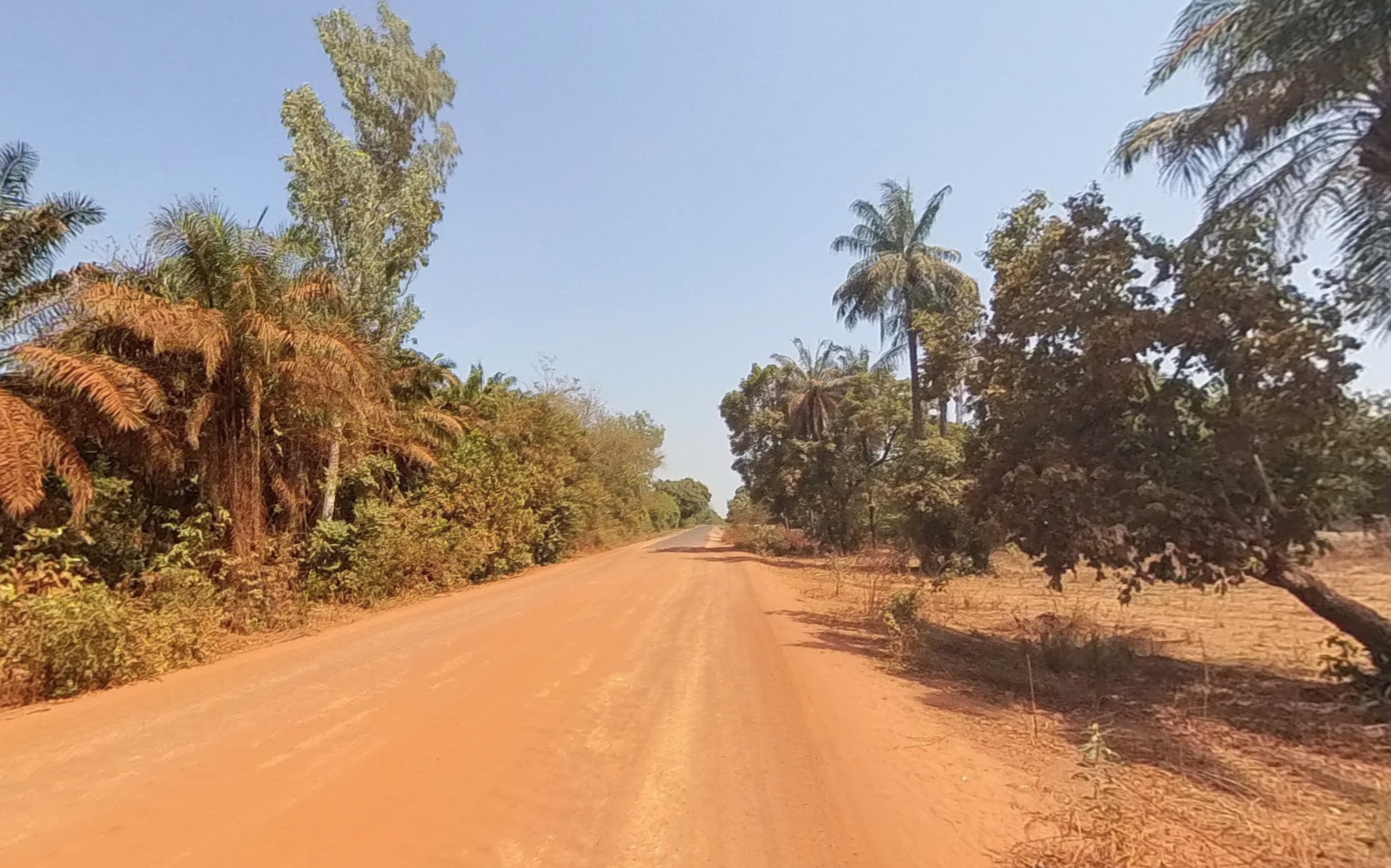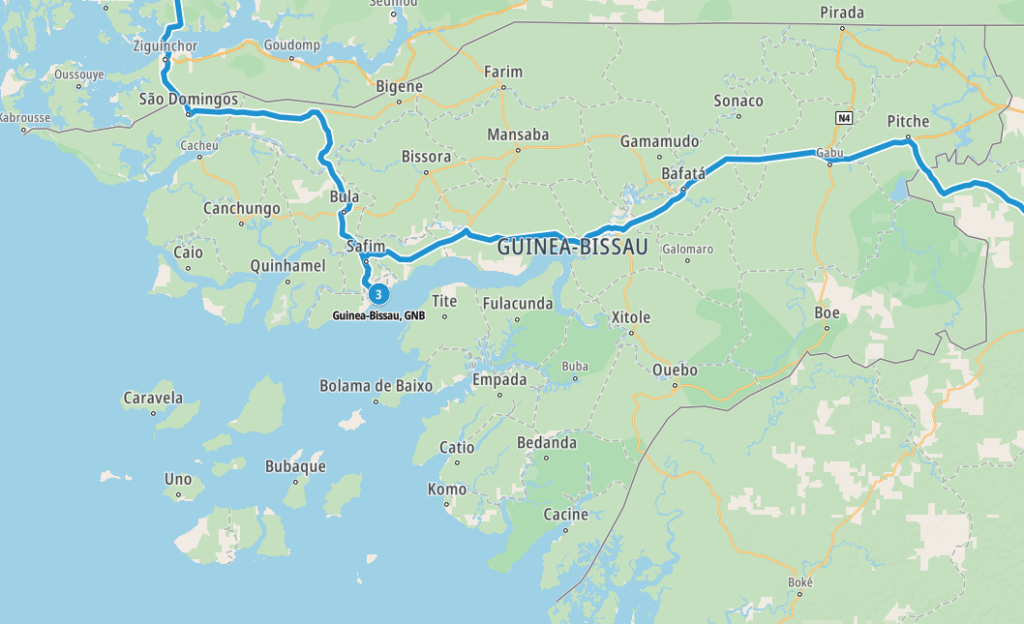Guinea-Bissau / República da Guiné-Bissau / 𞤘𞤭𞤲𞤫 𞤄𞤭𞤧𞤢𞥄𞤱𞤮 – Let’s explore here

What’s it like in Guinea-Bissau?
Guinea-Bissau is a poor, mainly flat country in western Africa that meets the coast of the Atlantic Ocean. It’s about half the size of Scotland, UK, and the terrain mainly consists of savannah grasslands and mangrove swamps. The highest point is the hill, Monte Torin, at around 860 ft (260 m) above sea level.
There are a group of almost 90 islands and islets off the coast that form the Bissagos Islands, around 20 of which are permanently populated.
It has a rich and troubled history, involving much political instability, resulting in it being one of the least developed and poorest countries on the planet. It achieved independence from Portugal in 1974, and it shares land borders with Senegal and Guinea.
The population of Guinea-Bissau is around two million people (2023), about ¼ of whom live in the capital, Bissau.

A bit about the history of Guinea-bissau
Early History and Colonisation
Guinea-Bissau has a history that dates back to ancient times when it was home to various indigenous ethnic groups such as the Balanta, Fula and Mandinka. The region became a part of the transatlantic slave trade, with the Portuguese establishing their presence in the area in the 16th century.
Portuguese Colonial Rule
In the late 19th century, Guinea-Bissau formally became a colony of Portugal, known as Portuguese Guinea. The Portuguese sought to exploit the region’s resources, including its palm oil, and enforced a system of forced labour. Over time, resentment grew among the local population due to economic exploitation, cultural suppression and political disenfranchisement.
Struggle for Independence
In the mid-20th century, as anti-colonial movements spread across Africa, the people of Guinea-Bissau began demanding independence. The independence movement was led by the African Party for the Independence of Guinea and Cape Verde (PAIGC), founded by Amílcar Cabral in 1956. After years of armed struggle, marked by the Guinea-Bissau War of Independence, the PAIGC managed to force Portuguese withdrawal.
Independence and Early Years
Guinea-Bissau declared its independence on 24 September 1973, although it was not officially recognised by Portugal until 1974 after the Carnation Revolution in Portugal. Upon independence, Luís Cabral, Amílcar Cabral’s brother, became the first president of the new republic. However, the early years of independence were marked by political instability, economic difficulties, and tensions within the PAIGC.
Political Instability and Coups
Guinea-Bissau has experienced significant political instability since independence. In 1980, a military coup ousted President Luís Cabral, and João Bernardo Vieira became the new leader. His rule was marked by attempts at economic reforms, but it also led to civil unrest and periodic military coups. In the 1990s, the country shifted to a multi-party system, but the political landscape remained volatile. In 1998, another civil war broke out, resulting in the ousting of Vieira, although he returned to power in 2005 after a period of exile.
21st Century Challenges
Since the early 2000s, Guinea-Bissau has continued to struggle with political instability, military interference in politics, and issues such as corruption and drug trafficking. Multiple coups and the frequent replacement of presidents have led to a lack of continuity in governance. In 2009, President Vieira was assassinated during a coup attempt, and the country faced further turmoil with the subsequent power vacuum.
The 2010s: Continued Struggles and Efforts for Stability
In the 2010s, efforts were made to restore stability, including the holding of relatively peaceful elections. However, political crises and disputes between the president and the prime minister persisted, leading to the frequent dissolution of governments. The military continued to exert considerable influence over the political process, and Guinea-Bissau’s economy remained heavily dependent on agriculture, particularly cashew nuts.
Recent Developments
In 2019, Umaro Sissoco Embaló was elected president in a runoff election, defeating the incumbent, José Mário Vaz. Embaló’s tenure has been marked by efforts to improve governance, combat corruption, and stabilise the political environment. However, Guinea-Bissau continues to grapple with challenges, including a fragile political system, instability in government, and ongoing concerns about drug trafficking through the country’s territory. Despite these challenges, Guinea-Bissau has made some progress in consolidating its democratic institutions and is a member of the Economic Community of West African States. However, its development remains hampered by political instability and the weak rule of law. As of 2025, Guinea-Bissau’s future remains uncertain, with its political future largely dependent on the resolution of internal conflicts and the creation of a more stable governance system.

Guinea-Bissau road trip
Our Bissau-Guinean road trip is part of a much larger African road trip.
Our current planned road trip through Guinea-Bissau takes us from Senegal towards the capital, Bissau, before heading east trough the country to Guinea.
No doubt we’ll explore the country much more than this continent-spanning short route shows, in particular checking out inland Guinea-Bissau.
Hopefully our journey will improve our knowledge of this intriguing and beautiful country, and enable us to meet some interesting people. We’ll be updating this page at that time – don’t forget to check back 🙂
Map of our road trip through Guinea-Bissau

What’s it like to drive in Guinea-Bissau?
They drive on the right hand side of the road in Guinea-Bissau. In the main, roads are very poor, with many being unsurfaced dirt tracks. Driving standards are also poor.
Do you require an international driving permit in Guinea-Bissau?
We’ve created a dedicated page to driving abroad, which answers this question, and more, which you might find helpful.
Can you use your UK driving license when driving through Guinea-Bissau?
We’ve created a dedicated page to driving abroad, which answers this question, and more, which you might find helpful.
Do I need a carnet de passages to drive in Guinea-Bissau?
We’ve created a dedicated page to driving abroad, which answers this question, and more, which you might find helpful.
What currency do they use in Guinea-Bissau?
In Guinea-Bissau they use the West African CFA franc. Cash is widely used. The use of credit / debit cards is not widely accepted. Travellers cheques are not generally accepted. There are ATMs in larger cities.
The West African CFA franc is used in Benin, Burkina Faso, Guinea-Bissau, Côte d’Ivoire, Mali, Niger, Senegal and Togo.
You should make yourself aware of the amount that your bank charges you for using credit and debit cards abroad. Often credit cards are cheaper for purchasing items directly, and for withdrawing cash from ATMs.
What language do they speak in Guinea-Bissau?
They mainly speak Guinea-Bissau Creole and Fula in Guinea-Bissau, although Portuguese is also widely spoken around the capital, and is the official language. French is also widely spoken as a foreign language, however English is not widely spoken.
What time zone is Guinea-Bissau in?
Remember, when you’re planning your next trip to take a look at what time zone it’s in.
Do I need a visa to visit Guinea-Bissau?
We’ve created a dedicated, more comprehensive page on visas, which you should find helpful. Check it out!
Is wild camping legal in Guinea-Bissau?
Yes, wild camping is fine in Guinea-Bissau.
What plug / socket type do they use in Guinea-Bissau?

In Guinea-Bissau they use plug / socket type C.
Health issues in Guinea-Bissau
Is it safe to drink water in Guinea-Bissau?
No, it is not safe to drink tap water in Guinea-Bissau. Bottled water is readily available throughout the country.
What vaccinations are required for Guinea-Bissau?
This NHS website is kept up to date with all relevant information on vaccinations in Guinea-Bissau.
Phones in Guinea-Bissau
What is the country calling code for Guinea-Bissau?
The country calling code for Guinea-Bissau is +245
What are the emergency phone numbers in Guinea-Bissau?
- The emergency number for police in Guinea-Bissau is: 112 / 117
- In Guinea-Bissau, the emergency number for ambulance is: 112 / 119
- The emergency number for fire in Guinea-Bissau is: 112 / 118
If you’ve got some useful info that you’d like to share, let us know!
And don’t forget to check out all the other pictures!
